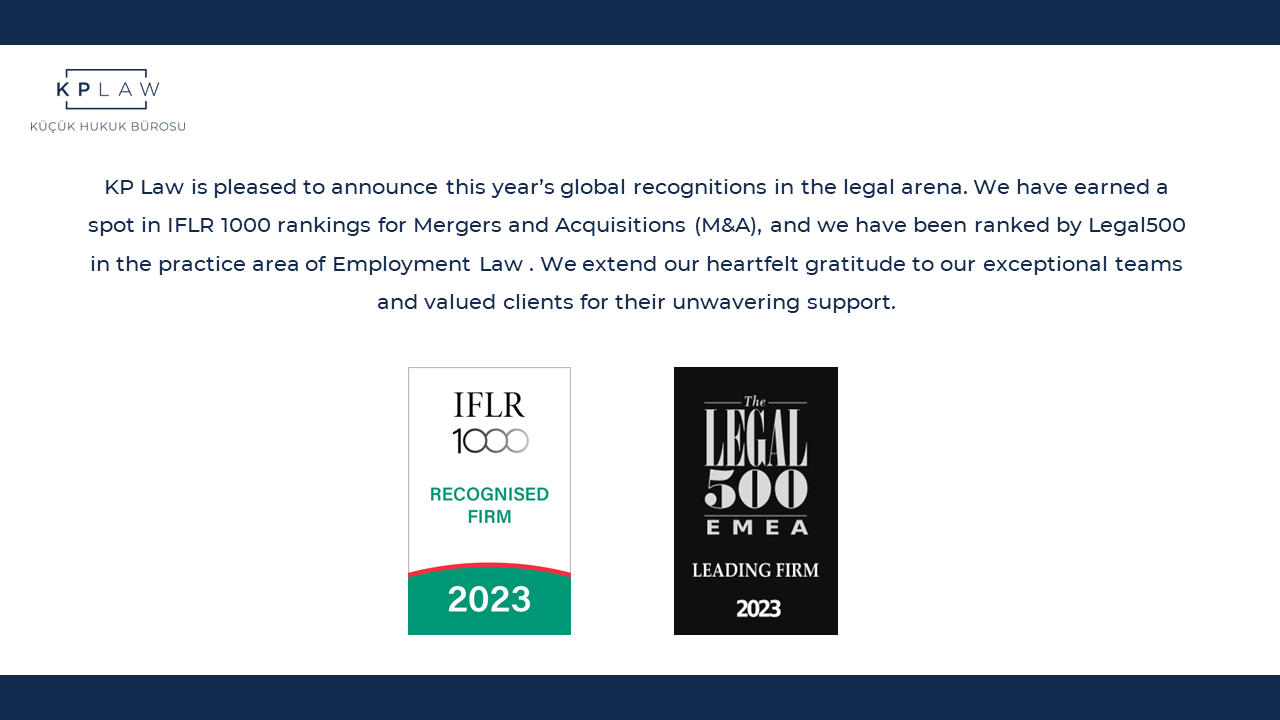News & Insights
Turkey's Ongoing IP Concerns: A Focus on the Special 301 Report's Watch List in 2023
In 2023, Turkey remains on the Special 301 Report’s (“Report”) Watch List due to ongoing concerns regarding intellectual property protection and enforcement. The Special 301 Report is an annual review conducted by the Office of the United States Trade Representative to assess the state of intellectual property protection and enforcement among U.S. trading partners across the globe. As mandated by law, the yearly Special 301 Report comprises a compilation of “Priority Foreign Countries”. These are countries deemed to have insufficient intellectual property laws, potentially leading to the imposition of sanctions. Furthermore, the report also includes a “Priority Watch List” and a “Watch List”, which list countries considered to have problematic intellectual property systems. While Turkey has made efforts to strengthen its IP regime, such as implementing the 2016 Industrial Property Law, which includes stricter penalties for counterfeit goods and improved authority to destroy them, there are still issues to be addressed. This article focuses on those issues listed for Turkey.
The Special 301 Report recognizes Turkey as a significant source of, and transshipment point for, counterfeit and pirated goods across a variety of industry sectors, and is one of the world’s largest sources of counterfeit medicines and apparel. It also identifies Turkey is a transit hub, with counterfeit products transported either directly to customers or indirectly through Turkey to reach third-country markets.
The report indicates that Turkey, due to its location, is a significant source of counterfeit and pirated products in various industrial sectors and serves as a transit center used for cargo transfer and ship transportation. The Report, which also addresses problems in the pharmaceutical and medical device industries, states that Turkey needs to improve its drug production control process.
US companies are expressing their concerns about the lack of transparency and fairness in Turkey's national pricing and reimbursement policies for pharmaceutical products. Stakeholders in these sectors underline the need for better protection against the unfair commercial use and unauthorized disclosure of test data used for the marketing approval of drugs. It is emphasized that more effort needs to be made to reduce the regulatory and administrative delays in granting marketing approvals for these types of products.
In this study, the United States calls on Turkey to establish an effective mechanism for the early resolution of potential drug patent disputes and to address the insufficient number of personnel dealing with counterfeiting issues. Another critical point that the report recommends Turkey to address is the ex officio authority of law enforcement officers. Ex officio authority grants Turkish law enforcement the power to seize and destroy goods suspected of being counterfeit within their own borders and at import, export or transit points, without relying solely on formal complaints from rights holders.
In Turkey, this ex officio authority in Turkey is limited to copyright violations, not trademark counterfeiting violations. This deficiency poses significant challenges to effectively combatting counterfeiting. Granting ex officio authority to the Turkish National Police for trademark violations would enhance IP enforcement capabilities.
Another critical area to help address counterfeit concerns is the request that Turkey place more of a focus on online enforcement. The United States encourages Turkey to fulfill its obligations under the WIPO Internet Treaties, combat online piracy, and ensure fair and transparent procedures for collective management organizations. Right holders continue to note high levels of online piracy, as well as the use of unlicensed software by some government agencies.
The United States is actively collaborating with other governments to address the issue of unlicensed software usage. Significant progress has been achieved through this initiative, resulting in many trading partners implementing policies that require the exclusive use of legal software. However, the Report notes that there is ongoing work to be done with Turkey. The United States strongly urges Turkey to adopt and implement effective and transparent procedures that ensure legitimate use of software.
Companies often utilize letters of consent to resolve potential disputes and overcome refusals based on the likelihood of confusion. These letters serve as an agreement between multiple trademark owners, acknowledging that their marks can coexist in the marketplace without causing confusion regarding the origin of the identified goods or services. However, the recognition and treatment of letters of consent vary across countries. The Report acknowledges that Turkey now accepts letter of consent.
The Report also highlights that stakeholders have expressed concerns over the vagueness in the interpretation of certain provisions of Industrial Property Law No. 6769. The lack of clarity in understanding specific aspects of the law can lead to confusion and inconsistent application.
Although the Report hones in on areas where Turkey needs to improve its intellectual property protection and enforcement, it does also touch base on some of Turkey’s notable advancements. Efforts have been made to review and update the copyright law, along with the development of a comprehensive government-wide IP strategy for the next five years. The expansion of the Turkish Patent and Trademark Office's team of patent and trademark examiners further demonstrates a commitment to strengthening IP protection. Despite these positive changes, concerns from right holders persist regarding the overall effectiveness of IP rights enforcement in Turkey. Continued attention and improvement are necessary to address these apprehensions and ensure robust protection for intellectual property in the country.

